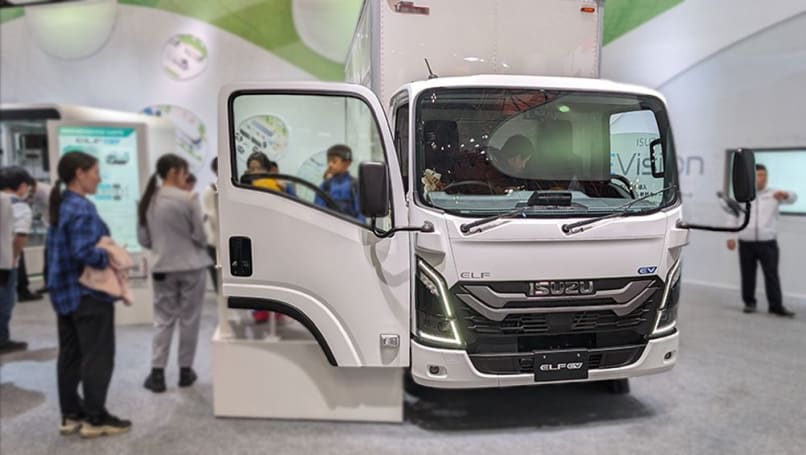
2025 BYD Shark 6 sales scrutinised as rival Kia Tasman ute and plug-in hybrid Ford Ranger PHEV and GWM Cannon Alpha launches loom
BYD Shark 6 fever has well and truly swept over the country, but is it all as...
Browse over 9,000 car reviews

Isuzu Trucks is not concerned about being a latecomer to the electric truck game as rivals from Hyundai, Fuso and Iveco quickly move into the EV space.
Speaking to CarsGuide, Isuzu Motors Limited Vice-President of Corporate Strategy Division, Konstantin Kriegelsteiner said the Japanese truck brand does not want to move too quickly into the electric era if it cannot maintain its dependable reputation.
“One of the strong points of the Isuzu brand is reliability, so I think that’s something we really don’t want to risk,” he said.
“We want to make sure that if we launch a product and it has the Isuzu badge on it, you have certain expectations and I think that would be not the right decision to hurry too much.
“It took us a while, but now we have something that we know will deliver the same quality as the conventional ICE models.”
Isuzu Trucks’ first all-electric offering is the new-generation N Series due to launch in Australia from around 2025, but has already launched in its home market of Japan where it is known as the Elf.
The electric truck features 20kWh battery modules that can be stacked for an up-to-100kWh capacity, enabling a driving range of around 200km in the light-duty truck.

This technology is also expected to proliferate across to Isuzu’s light-commercial division that fields the D-Max ute and MU-X off-road SUV, with an all-electric version of the former confirmed for an international launch in 2025.
In fact, some Isuzu Trucks Australia executives have drawn parallels with Toyota, with both market-leading companies careful about jumping ahead with new products and technologies without fully understanding the ramifications.
Isuzu Trucks Australia’s launch of the N Series EV will lag behind the Hyundai Mighty, priced at $150,000 before on-road costs, as well the Fuso eCanter that launched in 2021 and Iveco eDaily that began local testing earlier this year.
However, Kriegelsteiner said there is no risk of Isuzu Trucks losing its number one position by not acting fast on the shift to EVs, as pricing and limited range are still high hurdles for buyers and fleet operators to overcome, but electric trucks could have other uses outside of transportation.
“Currently it [electric truck adoption] only makes sense if you are very passionate about EVs or you have access to very low-price electricity or you have government subsidies,” he said.
“In Japan at night, we have excess electricity, but you need to store it somewhere, and I think the commercial vehicles will play a major role in being that electricity storage – soaking up and charging batteries overnight, and then during the day you can move around freely.
“And, in Japan in particular, we have trucks that operate 24 hours, swap driver and you keep driving.”
Comments